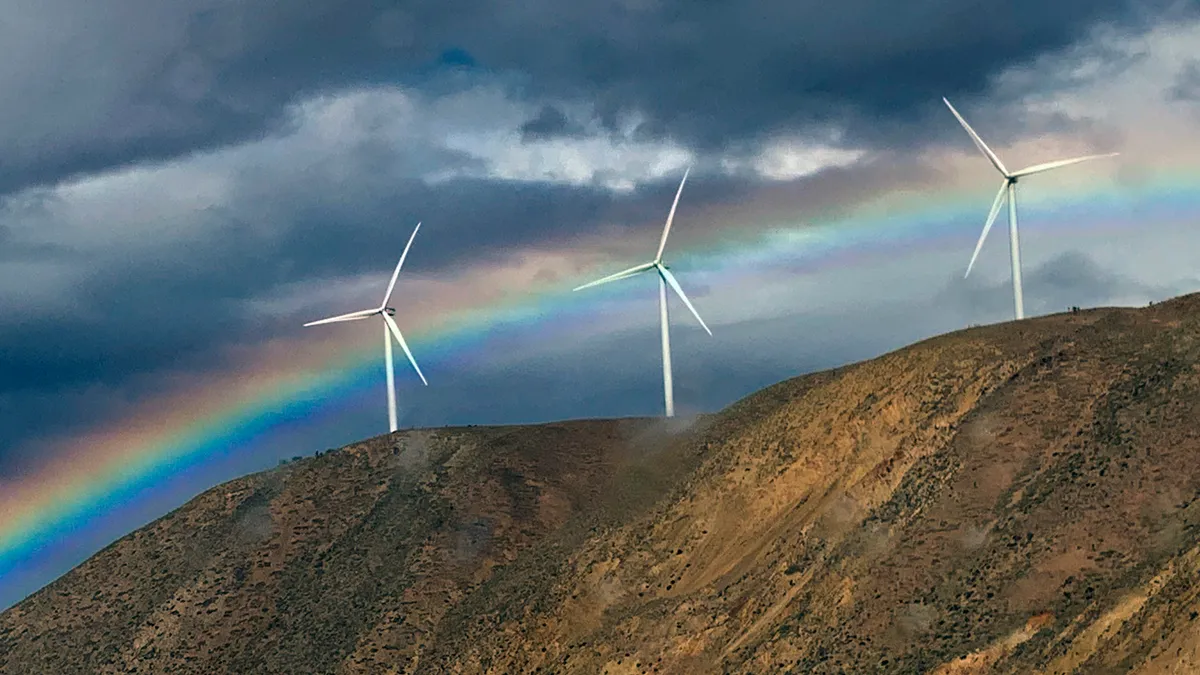Dive Brief:
- Attorneys general from more than a dozen states and New York City have urged the U.S. Department of Energy to resume updates to appliance energy efficiency standards and to consider rescinding some rules finalized by the Trump Administration that could be be "inconsistent" with the new administration's climate change policy.
- In a February regulatory review memo, DOE said it was reviewing 13 rules issued by the Trump Administration that may "present obstacles" to meeting President Joe Biden's energy goals and reducing greenhouse gas emissions. Among those are rules for setting a baseline for projected savings required to update or create a new energy efficiency standard (known as the "process rule"), and rules outlining how manufacturers can request efficiency testing waivers.
- Three California investor-owned utilities also called on DOE to resume setting appliance standards and to ensure agency rules are saving energy. Not all parties that commented on DOE's review want to see the Trump administration's policies reversed, however. Manufacturing and appliance groups were supportive of changes to the agency's efficiency programs, which granted them more flexibility.
Dive Insight:
Efficiency advocates were critical of DOE's actions on energy efficiency under the Trump administration, arguing new rules gave product manufacturers too much leeway — and consumers were losing money as the agency failed to update standards. Now, the Biden administration is considering what changes may be necessary to eliminate greenhouse gas emissions.
Biden wants to decarbonize U.S. power sector by 2035 and achieve a carbon-neutral economy by 2050.
Efficiency experts say boosting energy savings will be necessary to achieve those targets. Research from the Appliance Standards Awareness Project and the American Council for an Energy-Efficient Economy last year concluded consumers and businesses could save $1.1 trillion on utility bills in the next three decades, through updated appliance efficiency standards.
But under Trump, the DOE missed rulemaking deadlines to set standards for about two dozen consumer or commercial product and industrial equipment categories.
“We’ve got to get this critical program back on track," California Attorney General Xavier Becerra said in a statement. "That starts with meeting mandatory deadlines for strengthening energy efficiency requirements and moving swiftly to reverse four years of damaging attempts to undermine existing cost-saving standards.”
DOE is required to review national appliance standards every six years.
"The Department’s failure to promulgate updated efficiency standards results in a host of lost benefits for consumers and businesses, and for the state and local governments in which they reside or operate," the attorneys general said in their comments to DOE.
Along with California, the coalition includes New York, Colorado, Illinois, Maryland, Maine, Massachusetts, North Carolina, Nevada, Oregon, Vermont, Washington and Pennsylvania, as well as New York City. The group also urged DOE to "suspend, revise, rescind or vacate" several rules, including the process rule and changes to make testing waivers easier for appliance manufacturers to procure.
Three California utilities — Pacific Gas and Electric Company, San Diego Gas and Electric, and Southern California Edison — also called on DOE to update appliance standards. Failure to follow the set review schedule "creates market uncertainty for manufacturers and retailers, and leads to unnecessarily high energy consumption from energy wasting products," they said.
Several industry groups were more supportive of the rules issued by the Trump administration.
The Association of Home Appliance Manufacturers (AHAM) asked DOE not to withdraw a final rule that was completed in the last weeks of the Trump administration. The new rule requires DOE to make a decision on test waiver requests from appliance manufacturers within 45 days. If the agency doesn't respond in that time, a six-month waiver would automatically go into effect. Critics say the rule allows manufacturers to avoid government oversight.
"The rule streamlines the waiver process and allows innovative — often more efficient — products to more quickly go to market," AHAM said in filed comments.
The American Public Gas Association (APGA) also expressed its support of the updated process rule, saying the "modernization will improve appliance energy usage, benefiting American consumers and business owners, as well as reducing greenhouse gas emissions and improving the environment."
DOE in January also finalized rules detailing how the agency interprets the definition of "performance characteristics," to require separate standards for condensing and non-condensing furnaces. The decision was a victory for the gas industry, which warned some types of products would be essentially banned without the change. APGA has urged the new DOE to apply the rule to any new gas-fired appliance rulemakings. The rule is on DOE's list to review.















